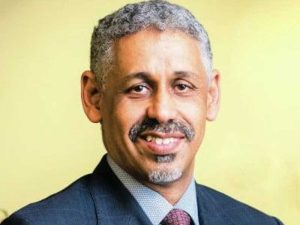Onome Amuge
Sidi Ould Tah, Mauritania’s former economy minister, has been elected as the ninth president of the African Development Bank (AfDB), securing the leadership of one of Africa’s most influential financial institutions.
Tah clinched victory in the third round of voting by the AfDB Board of Governors with 76.18 percent of the votes, according to official results released on Thursday. His closest challenger, Zambian economist Samuel Munzele Maimbo, placed second with 20.26 percent. Tah will assume office on September 1, 2025, succeeding Nigeria’s Akinwumi Adesina, whose ten-year tenure concludes this year.
The election, conducted during the AfDB’s Annual Meetings in Abidjan, involved voting by the Board of Governors, comprising finance ministers and central bank governors from the Bank’s 81 member countries. Ould Tah bested four other contenders, including Amadou Hott of Senegal, Zambia’s Samuel Maimbo, Abbas Mahamat Tolli of Chad, and Swazi Tshabalala of South Africa.
Born in Mederdra, Mauritania in 1964, Tah holds a doctorate in Economics from the University of Nice-Sophia-Antipolis, France, and has undergone executive training at Harvard University and the London Business School. His career includes serving as Mauritania’s Minister of Economic Affairs and, notably, as director general of the Arab Bank for Economic Development in Africa (BADEA). Reports show that during his leadership at BADEA, the bank’s balance sheet quadrupled, and it achieved a coveted AAA credit rating.
Tah’s campaign centred on several critical priorities for the continent. He emphasised mobilising private capital, integrating Africa’s vast informal sector into the formal economy, and significantly improving infrastructure to stimulate sustainable growth. He also pledged to deepen partnerships with the private sector and enhance the AfDB’s responsiveness to climate change, a pressing issue for many African nations.
His election comes at a crucial juncture for Africa, a continent struggling to address economic challenges including high debt levels, constrained fiscal space, and the escalating effects of climate change.
As Tah prepares to take the helm, the focus will be on how his leadership will help alleviate these challenges and drive the AfDB’s mandate to boost economic development and social progress across the continent.









